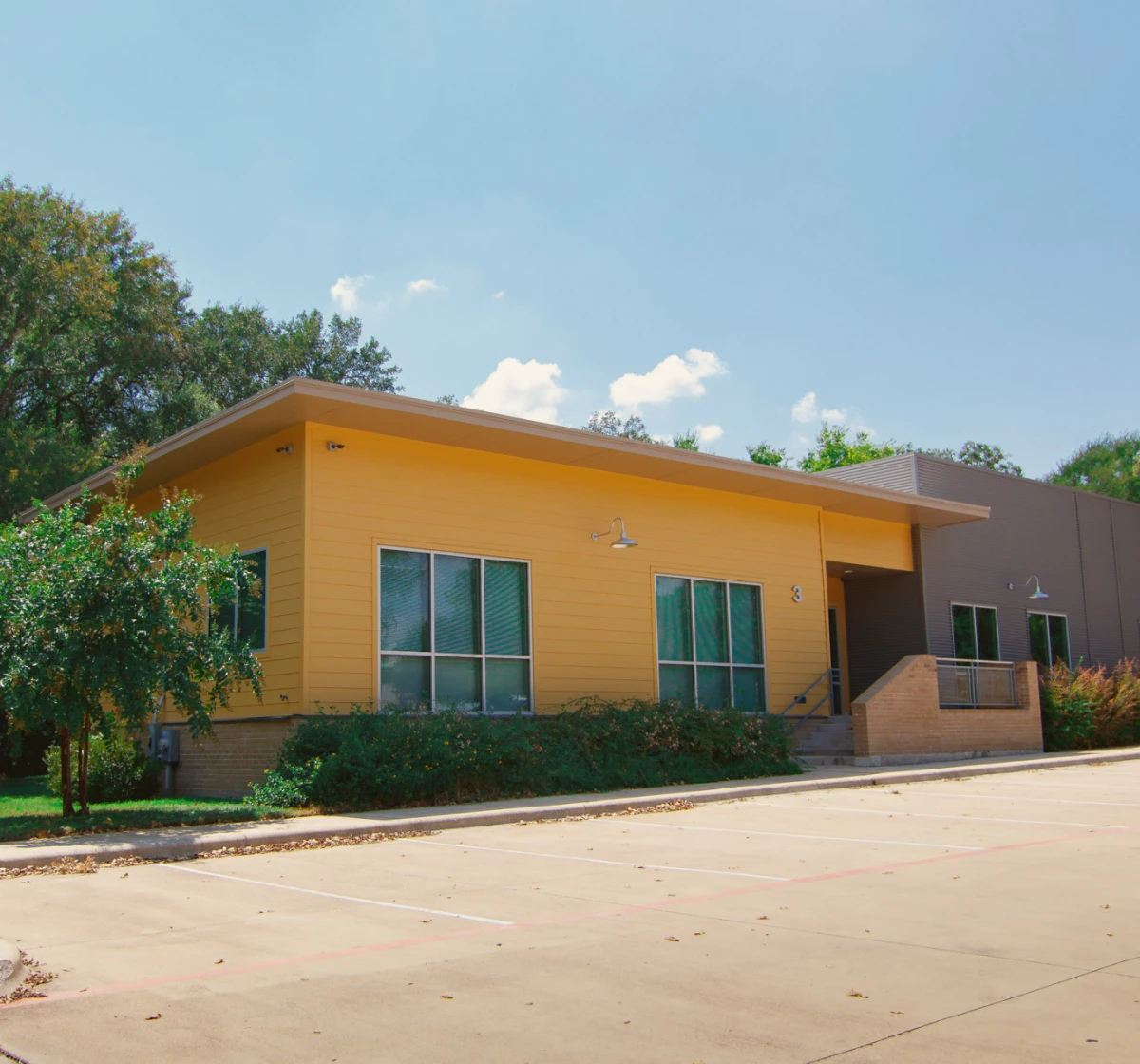We work with insurances. Verify yours now
Get to the Heart of the Matter with The Last Resort’s Evidence-Based Treatment for Addiction
Solution-focused brief Therapy (SFBT) offers a refreshing approach to addressing substance abuse. Rather than dwelling on past problems, SFBT focuses on strengths, solutions, and achievable goals. At its core, SFBT invites you to envision a future free from addiction and collaboratively work toward practical solutions that enhance your well-being.
This therapy method emphasizes resilience and resourcefulness, along with your inherent capacity to enact positive change.[1]
By creating a proactive mindset and building on existing strengths, Solution-Focused Brief Therapy at The Last Resort provides a supportive environment where clients can discover their own path to recovery and reclaim control over their lives.


Solution-Focused Brief Therapy (SFBT) for substance abuse is a kind of psychotherapy that focuses on identifying and amplifying the client’s strengths, resources, and solutions to achieve positive change.[2] Unlike traditional talk therapies that delve deeply into the origins and complexities of addiction, SFBT is present and future-oriented, emphasizing practical strategies and goals to improve the client’s life immediately.
In SFBT sessions (which can be conducted individually, in group therapy, or with family members), therapists collaborate with you to explore your goals and aspirations. The therapist helps the client identify times when they have coped well or made progress, highlighting their existing skills and resilience. The approach encourages clients to envision a future without substance abuse and assists them in identifying small, achievable steps toward that goal.
Key techniques used in Solution-Focused Brief Therapy include scaling questions (e.g., “On a scale from 1 to 10, where are you now in terms of achieving your goal?”) and miracle questions (e.g., “If a miracle happened tonight and you woke up tomorrow without any addiction issues, what would be different?”).[3] These techniques facilitate the exploration of solutions, build motivation, and promote a positive outlook on change during your treatment program.

Solution-Focused Brief Therapy is an evidence-based practice that operates on the principle that people possess within them the strengths and resources needed to overcome substance abuse and dual diagnosis challenges. The efficacy of SFBT in addiction treatment stems from its pragmatic approach: therapists collaborate with clients to define clear, realistic goals related to reducing or ceasing substance use.[4] This collaborative process encourages clients to envision a future where they are free from addiction and helps them identify the small steps necessary to achieve this vision.
By exploring exceptions to problematic behaviors and highlighting instances of resilience and success, SFBT builds on the client’s existing strengths and resilience. SFBT emphasizes the client’s agency and self-efficacy in making positive changes. By focusing on solutions and strengths, SFBT enhances motivation and self-confidence.
This approach empowers clients to take active steps towards recovery, creating a sense of optimism around lasting change.

Solution-Focused Brief Therapy has demonstrated promising effectiveness in improving substance use behaviors and addressing related psychosocial issues. Research findings highlight that SFBT interventions have successfully influenced substance use outcomes and concurrent mental health challenges, including depression, trauma, and behavioral issues related to work and school environments.[5] Out of nine studies reviewed, five reported significant positive changes in substance use and comorbid conditions when employing SFBT techniques.
Additionally, SFBT’s application in clinical settings with those struggling with alcohol abuse and alcohol use disorders has shown favorable outcomes as well.[6] The therapy’s emphasis on strengths rather than dwelling on problems has proven effective in promoting behavioral changes and enhancing overall well-being.
By focusing on solutions and leveraging clients’ existing resources, SFBT offers an alternative therapeutic approach that resonates with people seeking a strengths-based and empowering treatment option for substance use and trauma recovery.[7]
Overall, the evidence supports the effectiveness of SFBT as a valuable intervention in treating drug use and dual diagnosis issues, offering a holistic and effective pathway toward sustained recovery.

Engaging in Solution-Focused Brief Therapy for addiction and dual diagnosis issues involves a collaborative and goal-oriented approach designed to empower clients throughout their recovery journey. In SFBT therapy sessions, clients can expect a supportive and non-judgmental environment where the focus is on identifying achievable goals and practical solutions to address their substance use behaviors.

During the initial SFBT sessions, the clinician and client work together to clarify the desired outcomes and establish clear, realistic goals related to reducing or eliminating substance use. Through open-ended questions and reflective listening, the provider helps clients explore their strengths, resources, and past successes, which serve as the foundation for developing a personalized treatment plan.
Throughout the therapy process, clients are encouraged to envision a future where they have overcome their substance use challenges. These questions stimulate creative thinking and guide clients toward identifying practical steps towards their goals. Clients can also expect to engage in discussions focusing on positive changes they have already made or when they have successfully managed their substance use, taking a solutions-focused approach to the collaboration.
SFBT offers a proactive approach to overcoming substance abuse challenges. The Last Resort integrates SFBT principles and treatments that help you focus on your strengths and abilities to achieve meaningful change. You’ll explore practical solutions to your problems, set achievable goals, and develop strategies to enhance your well-being and sustain recovery.
Discover how SFBT and our other treatment modalities at The Last Resort can support your journey towards a substance-free life. Call our admissions team today.
Solution-Focused Brief Therapy is primarily used to address substance use disorders and related psychosocial issues in a problem-solving fashion. It can effectively treat conditions such as alcohol and drug dependence, co-occurring mental health disorders (e.g., depression, anxiety), trauma-related symptoms, and behavioral challenges associated with substance abuse.
The duration of SFBT for substance abuse treatment can vary based on individual needs and goals, along with your treatment setting (such as outpatient clinics or inpatient treatment centers). Typically, SFBT is considered a brief and focused therapy approach, with sessions ranging from 6 to 12 weeks on average. However, the exact length of treatment may depend on factors such as the severity of substance use, client progress, and specific treatment objectives discussed with the therapist.
The timeline for solution-focused therapy and addiction challenges will vary from client to client, depending on your circumstances and treatment goals. Some clients may experience positive changes after just a few sessions in the short term, while others may benefit from ongoing therapy to achieve sustained recovery. By design, this therapy intervention is a brief therapy intended for short-term application over a few sessions..
SFBT helps in managing cravings and triggers by empowering clients to focus on practical solutions and strengths rather than dwelling on the intensity of cravings or triggers. Therapists use techniques such as scaling questions and exploring exceptions to identify times when clients have successfully managed cravings or avoided triggers. This approach cultivates self-efficacy and encourages clients to develop personalized strategies for coping with cravings and avoiding relapse.
Solution-Focused Brief Therapy can be effective for many people struggling with substance abuse. It is particularly beneficial for those motivated to make positive changes in their lives and open to a collaborative and goal-oriented therapeutic approach. SFBT focuses on identifying and amplifying strengths and resources within each client, which can lead to meaningful progress in managing substance use and achieving long-term recovery goals.
[1] Jerome, L., McNamee, P., Abdel-Halim, N., Elliot, K., & Woods, J. (2023). Solution-focused Approaches in Adult Mental Health research: a Conceptual Literature Review and Narrative Synthesis. Frontiers in Psychiatry, 14(1068006). https://doi.org/10.3389/fpsyt.2023.1068006 on June 20, 2024
[2] Bannink, F. P. (2007). Solution-Focused Brief Therapy. Journal of Contemporary Psychotherapy, 37(2), 87–94. https://doi.org/10.1007/s10879-006-9040-y on June 20, 2024
[3] 7 KEY SOLUTION-FOCUSED STRATEGIES. (n.d.). Www.pacwrc.pitt.edu. https://www.pacwrc.pitt.edu/Curriculum/521Strength-BasedSolution-FocusedSupervision/Handouts/HO%206%207%20Key%20S_F%20Strategies.pdf on June 20, 2024
[4] Solution-focused brief therapy: A handbook of evidence-based practice | request PDF. (n.d.-a). https://www.researchgate.net/publication/292631217_Solution-Focused_Brief_Therapy_A_Handbook_of_Evidence-Based_Practice on June 20, 2024
[5] Franklin, C., & Hai, A. H. (2021). Solution-Focused Brief Therapy for substance Use: A review of the literature. Health & Social Work, 46(2). https://doi.org/10.1093/hsw/hlab002 on June 20, 2024
[6] APA PsycNet. (n.d.). Psycnet.apa.org. https://psycnet.apa.org/record/2011-19840-018 on June 20, 2024
[7] Kim, J. S., Brook, J., & Akin, B. A. (2018). Solution-Focused Brief Therapy With Substance-Using Individuals. Research on Social Work Practice, 28(4), 452–462. https://doi.org/10.1177/1049731516650517 on June 20, 2024
Our admission specialists are ready to talk with you 24/7 about starting the journey. We always treat each caller with the utmost respect, detailing your treatment options and respecting your confidentiality.
Based on your assessment, we’ll work together to create a customized treatment plan that addresses your needs, ensuring you have the support and resources necessary to achieve your goals.
The Last Resort is in-network with most major insurance companies. Fill out the form below to verify your healthcare coverage within the hour.
We’ll welcome you to our campus and start laying the groundwork for a successful, long-term recovery.